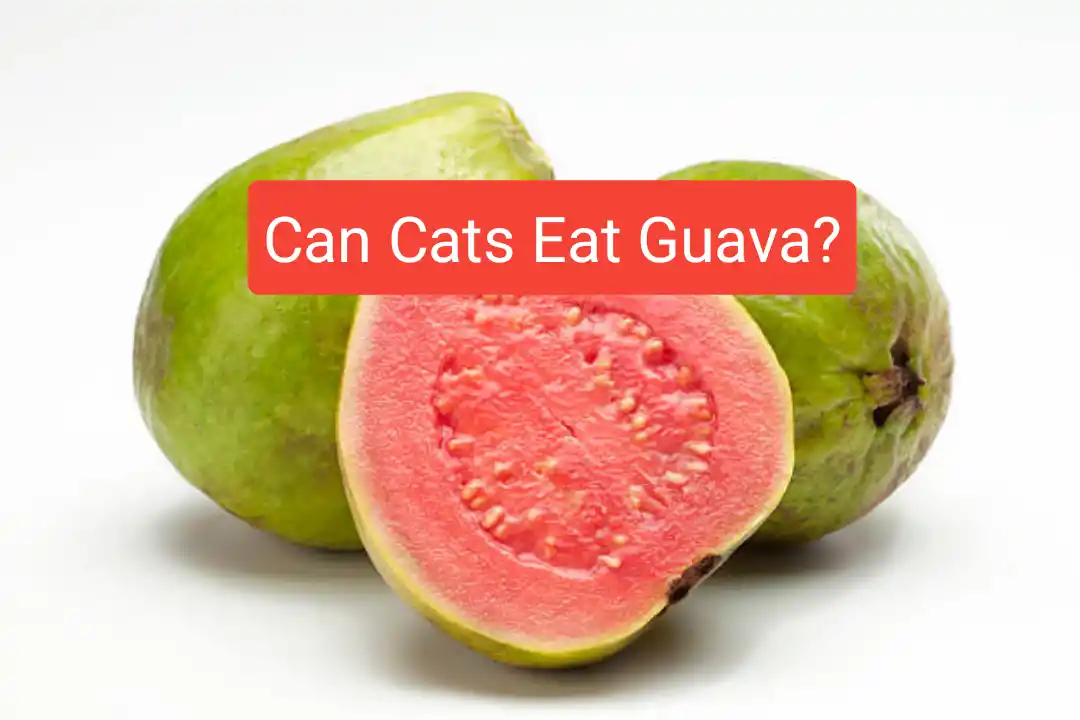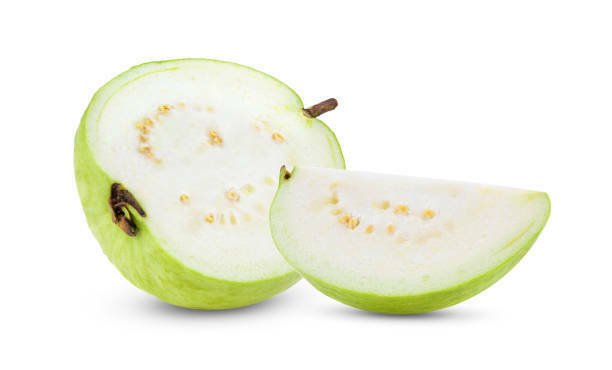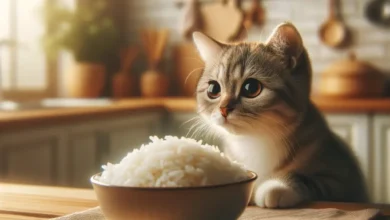Can Cats Eat Guava? Is Guava Safe For Kittens? 4 Benefits You Should Know

Guava has a unique and sweet flavor that is almost universally accepted. The tases of guava are a mixture of pear and strawberry. But can cats eat guava?
Can cats eat guava? Yes, Cats can eat guava without having any issues. However, you should ensure your pet eats guava in moderate quantities; guava has tremendous amounts of Vitamin C, which is good for your cat’s health. If your cat overeats guava, oxalate found in guava can be harmful to its health in large quantities.
Guava has many unique uses for cats, which could be highly beneficial for them. The following subheadings will relay the nutritional components of guava and the best way and amounts you should give your feline friend.
Table of Contents
- What is Guava?
- Can cats eat Guava?
- Are guavas bad for cats?
- What Are the Benefits of Feeding Guavas to Cats?
- Can Kittens Eat Guava?
- Can Cats Eat Guava Leaves?
- Can Cats Eat Guava Yogurt?
- How to Prepare Guava for Cats
- Is guava safe for cats?
- Other fruits your cat can eat
- Can cats eat guava? – Final thoughts
What is Guava?
Guava is a tropical fruit native to Central America, South America, and the Caribbean. The flesh of this lovely fruit is usually a shade of pink or deep red, while its flesh is either light green or yellow.
Guava has edible seeds and a round shape. When ripe, it has a strong smell, sweet and musky. It is common in tropical climates globally.
Guava got to American soil in the 1800s when people grew it commercially in Hawaii and Florida. India is currently the highest producer of guava—making the country responsible for over 41% of the world’s total production.
Yes, cats can eat guava just as they would eat Korean pears. Guava for cats is safe; There is no immediate risk of toxicity. However, the guava seeds have severely caused cats to choke, so take out the seeds before giving your feline friend a guava treat.
Can cats eat Guava?
Pectin, a thickener used in baking and cooking, is found in high amounts in guava—pectin is utilized as a medicine for heartburn, cholesterol, and a host of other diseases—this is why some people use guava to resolve diarrhea, giving your cat much guava can lead to constipation.
As I stated in the introduction of this article, guava contains palate, like avocado, grapefruits, oranges, blackberries, blueberries, strawberries, and raspberries. Oxalate will not only cause issues to your cat’s digestive system, but it will also cause severe issues like urinary tract problems and the development of bladder stones.
In a case where you make guava part of your cat’s daily food, b sure that; the cats can’t taste sugar which means you should take away sentiments of trying to give your feline friend sweet treats. A slice of guava will do the perfect trick.
The basis of a cat’s nutrition and everything required for the proper function of your cat is in cat foods and meat—this is where the priority is. Other suitable fruits for cats are watermelon.
Can cats eat Guava Leaves? Yes, your cat can eat guava leaves; there is no toxic report on guava leaves for cats, but if your cat reacts to the leaves, tell your vet in detail—about the experience.
Read: Should you give your cats mitten pickins?
Are guavas bad for cats?
No. In small quantities, guava could benefit your cat since it contains Vitamin C and a host of other nutrients. However, if your cat consumes large amounts of vitamin C, it will lead to choking oxalate poisoning.
Also, ensure you don’t give your cat canned guava fruit; canned foods or fruits usually contain lots of preservatives and untold ingredients, which could harm your cat’s digestive system or organs. It is best to give your cat slices of fresh guava.
Guavas have lots of sugar and carbohydrates. For every 100 grams of guava, there are 8grams of sugar and 14.32 grams of carbohydrate. Too much sugar in your cat’s diet will lead to obesity, which you don’t want.
What Are the Benefits of Feeding Guavas to Cats?

Now you know your cat could munch on this tropical beauty; what’s the benefit of letting your cat eat a slice of guava?
Guava has tons of minerals and vitamins that contribute to the proper functioning of your cat’s body. The list goes on from fiber, iron, calcium, etc.
Iron does a beautiful job of increasing hemoglobin levels in a cat’s blood, and it possesses essential enzymes which regulate some of your cat’s body functions.
The calcium content its strong development and growth of your cats’ gums, teeth, and bone. Potassium helps with nerve and muscle functions. Vitamin A is essential for good sight, and it keeps your cat’s coat shining.
Guava also contains fibers that help with constipation. How else do you strengthen your cat’s immune system and help your cat fight off bacteria and diseases, if not Vitamin C?
These are the benefits a slice of guava can give your feline friend. There are other fruits and foods we humans eat that could benefit our cats, while there are some that could put your cat into serious health complications; I will be listing them shortly.
Can Kittens Eat Guava?
Kittens can consume guava in small quantities, but it is not an essential part of their diet. Guava, being a fruit, does not provide the necessary nutrients for a kitten’s growth and development.
While guava is not toxic to kittens, it is essential to remember that their digestive systems are more sensitive than those of adult cats. Introducing new foods, such as guava, might cause stomach upset, diarrhea, or vomiting in some kittens.
Moreover, guava contains sugar, and kittens do not need high amounts of sugar in their diet. Too much sugar can contribute to weight gain and other health issues.
Can Cats Eat Guava Leaves?
As an animal specialist, I would advise against feeding cats guava leaves. While guava leaves have been traditionally used in some cultures for their potential health benefits, it is essential to understand that cats have different dietary requirements than humans. Guava leaves do not provide the necessary nutrients for a cat’s health and well-being, as they are primarily plant-based.
Guava leaves contain various compounds, such as flavonoids, tannins, and triterpenes, which may contribute to their potential medicinal properties. However, these compounds may not be suitable for cats. Introducing new or unusual foods, such as guava leaves, can cause gastrointestinal issues in cats, including vomiting, diarrhea, or stomach upset.
Regarding using guava leaves for cats diarrhea, it is worth mentioning that guava leaf tea has been studied for its potential to alleviate diarrhea in humans. The tea is thought to have antimicrobial and anti-inflammatory properties, which may help reduce the severity of diarrhea. However, it is crucial to note that research on guava leaf tea’s effects on cats is limited. Given their unique digestive systems and dietary requirements, it is not clear if guava leaf tea would provide the same benefits to cats as it does to humans.
Furthermore, it is essential to consider the potential risks associated with feeding guava leaves to cats. For instance, cats might experience difficulty in digesting the fibrous content of the leaves. Ingesting large quantities of guava leaves may also lead to choking or intestinal blockages, which can be life-threatening.
Read: What do cats like to eat? Find out!
Can Cats Eat Guava Yogurt?
Cats can eat guava yogurt in small amounts, but it is not the ideal food for them. While yogurt contains some protein, it is not a sufficient source for cats.
Additionally, many cats are lactose intolerant, which means they have difficulty digesting the lactose found in dairy products like yogurt. Consuming yogurt may cause gastrointestinal issues such as diarrhea, vomiting, or an upset stomach in lactose-intolerant cats.
If your cat must partake of your guava yogurt, ensure it’s the one you made yourself as you will have control over what is put inside it. Most guava yogurt contains additives and other ingredients that may be considered harmful to cats.
How to Prepare Guava for Cats
Guava has high sugar content; a slice is enough for your cat three times a week. If you want to do something more for your cat, you can roast some pumpkin seeds and enjoy them with your cat.
First, you need to wash the guava fruit thoroughly; this will remove dirt, pesticide, and fertilizer residue. Cut your guava into small bits, take out the seeds, and give your cat just a slice.
The remaining guava can be stored later; the fruit has a refrigerator life of 4 days. You can also mash the guava and mix it with your cat’s food.
Take off the skin if your cat doesn’t like it; my cat doesn’t like the skin of Korean pears, so I take them off when I feed it to him. Blending the guava into juice is also a viable option, but you should give it small and see if your cat would love it or not.
Here is a video of a cat becoming uninterested in a massive chunk of guava slice:
It would help if you did not give your cats canned guava since storage of canned guava includes immersion in sugar syrups—which are terrible for cats. Ensure you moderate the intake of guava by your cat; it should never headline your cat’s diet—it should be used as a treat sparingly.
Is guava safe for cats?
Ripe Guava is safe for cats, provided you don’t give excessive amounts. A small slice of guava can provide your cat with calcium, potassium, fiber, and vitamins A and C. Giving your cat lots of guava daily will lead to constipation and other digestive issues.
The pectin in guava acts as an anti-diarrhea compound; if this is something your cat is struggling with, then guava even further benefits him. Ensure you don’t give guava to a cat struggling with constipation.
The best thing I love about guava is how easy they are to prepare for your feline friend. Consuming the rind is safe for cats; this gives guava an edge over other fruits. The seeds are also easy to remove.
Can Cats Eat Ripe Guava
Yes, this is the best type of guava to give to your feline friend. Cut a little piece twice or three times weekly.
How can you tell when guava is ripe? Observe the guava to see if it has a lighter green shade. Ripe guava will give under your fingers and feel soft when you squeeze. (almost like an avocado).
As a rule of thumb, always give your cats new food in small quantities and observe how they react to it before you continue feeding them over the long run.
Can Cats Eat Guava Rind
Should cats be allowed to eat guava skin? The rind of guava for cats is safe, like a cat eating apple with the skin.
Some cats are sensitive to fiber; if your cat is one, ensure not to give them guava with the rind. Also, give cats with digestive issues/constipation some of the fruit without its skin.
Other fruits your cat can eat
- Apples without the seed
- Strawberry
- Banana
- Seedless watermelon
Fruits your cat shouldn’t eat
- Cherry
- Cranberry
- Grapefruit
- Lemon
- Lime
- Orange
Can cats eat guava? – Final thoughts
Cats can have guava; you should remove the seeds and cut the guava into bits that your cat will eat without choking hazards. Guava has vitamins A, C, calcium, potassium, iron, and fiber, which greatly benefit your cat’s digestive system, blood, and general well-being.
My cat enjoys just the inner part of guava. So, I peel off the rind. Generally, you cut the guava into bits and give your cat, but ensure you don’t provide guava to a cat suffering from constipation; you may just be causing more havoc.
If you find yourself in the wrong situation with guava for cats, get your vet involved and get professional help. Does your cat enjoy guava? Let us know your experience with guava and cats.
Mixing fruits with regular food can easily add them to your cat’s diet. And if you’re feeling adventurous, you can buy fruit-flavored cat food. Just make sure to read the ingredients list to make sure that there are no artificial additives or chemicals.





11 Comments